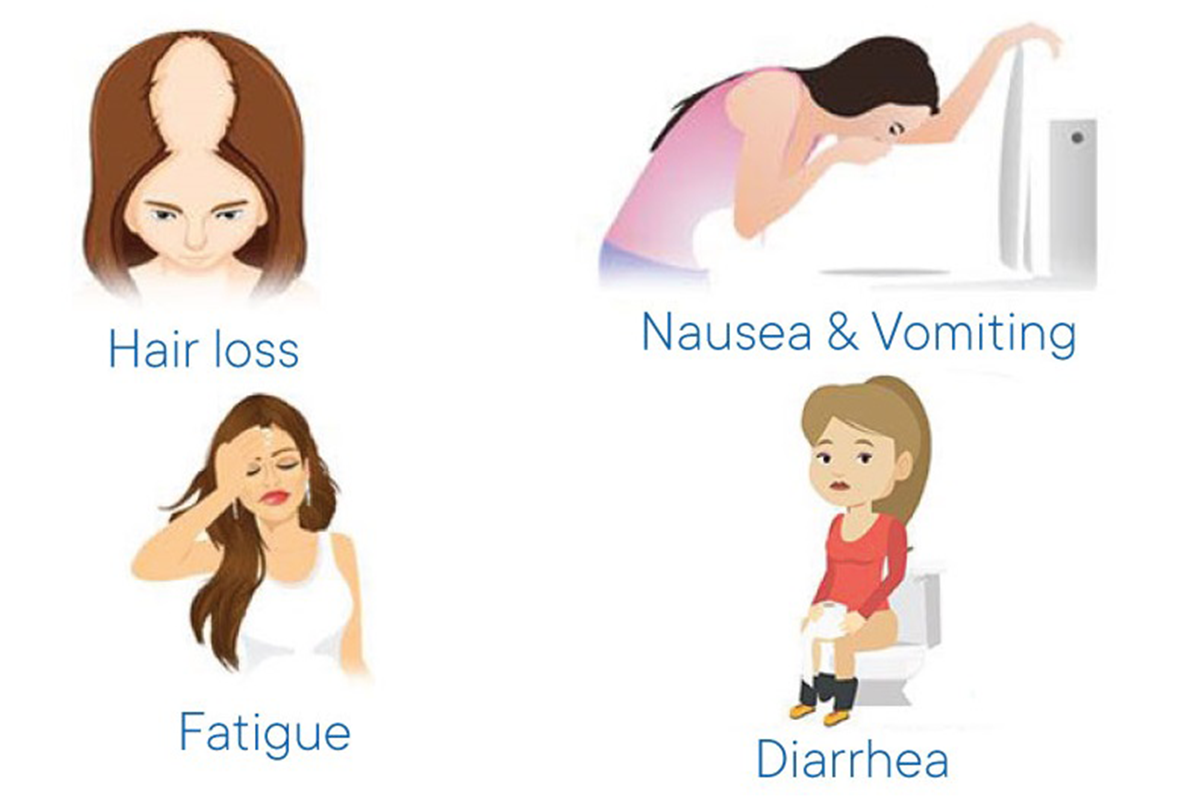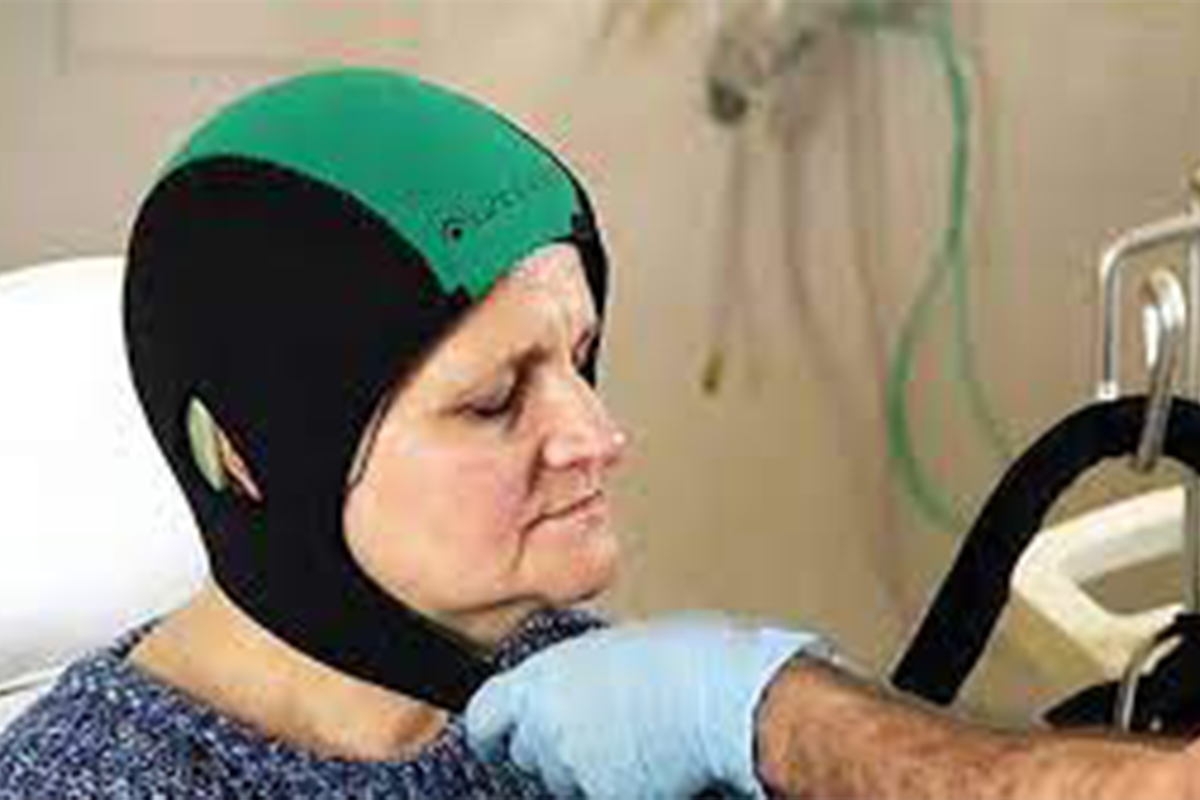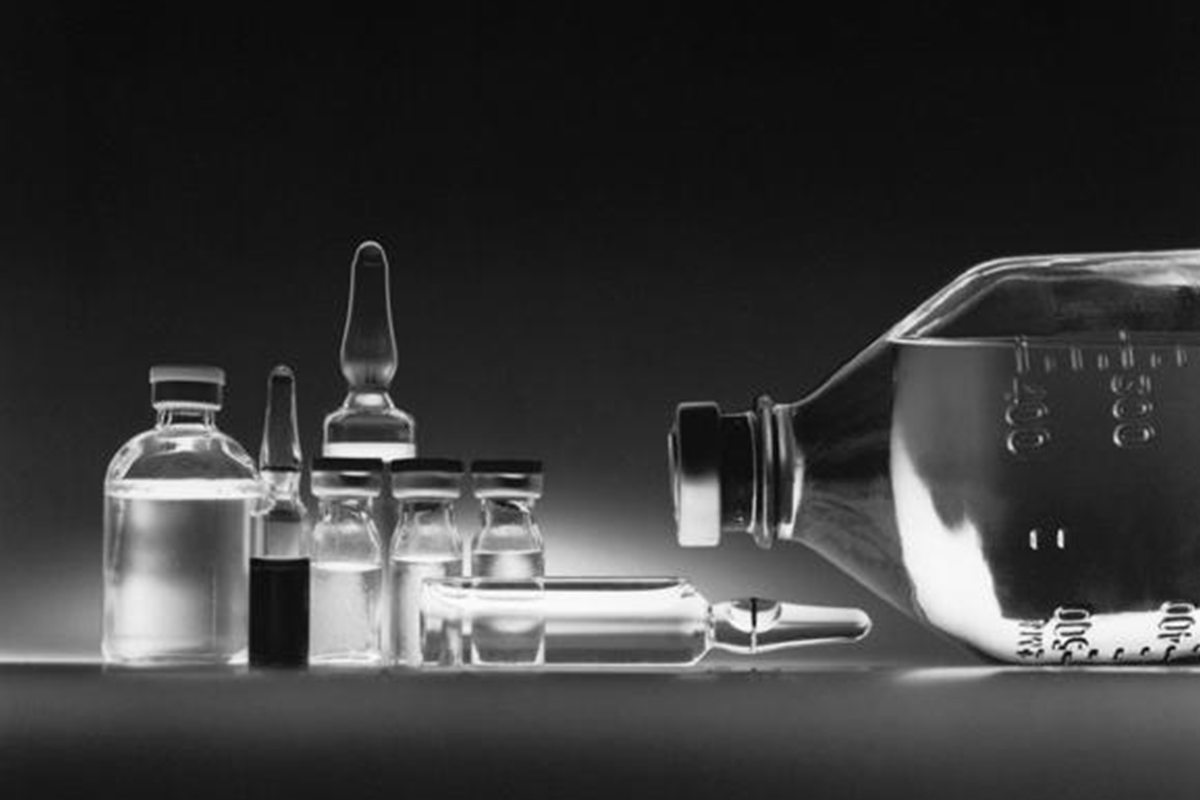How to Manage the Side Effects of Chemotherapy
Chemo is one of the most effective cancer treatments available, but it can also cause side effects such as fatigue, nausea, and more. Here’s what you can do about it.
Chemotherapy works by killing fast-growing cancer cells, but as these powerful drugs destroy the cancer, they can also wipe out rapidly dividing healthy cells, particularly those in the hair follicles, digestive tract, mouth, and bone marrow.

Which symptoms you experience — and how severe they are — will depend on which drugs are included in your regimen and how your body reacts to them, says experts.(And, in fact, not all chemo drugs cause side effects.)Fortunately, as the science of cancer has progressed, so, too, has the science of managing and mitigating the unwanted effects of chemotherapy.Below are some of the most common symptoms of chemo and what you can do to feel better.
1. Counter Chemo-Induced Fatigue With Exercise
“Tiredness is probably the most universal side effect of chemo treatment,” You’re likely to feel the most tired on the days right after treatment. Fatigue then tends to decrease until the next treatment.As counterintuitive as it may sound, one of the best ways to feel less drained while undergoing treatment is to exercise.

“It doesn’t have to be going to the gym. Just taking a walk can be extremely helpful,”Other ways to ease exhaustion include taking short naps or rest breaks (under 30 minutes) during the day, sticking to a regular sleep-wake schedule, eating a balanced diet that includes protein, and drinking 8 to 10 glasses of water every day, according to the American Cancer Society (ACS).Fatigue can sometimes be a sign of anaemia — having too few red blood cells to carry oxygen to the body — which can also result from chemotherapy, Eaton points out. If you experience extreme fatigue, shortness of breath, or dizziness, let your cancer team know. Treating this underlying condition can help ease your exhaustion.
2. Take Medication to Quell Nausea and Vomiting
One of the most common — and dreaded — effects of chemo is nausea and vomiting. But you may not need to be so fearful. Doctors now have an arsenal of effective anti-nausea drugs, known as antiemetics, at their disposal.
As a Doctor, “We are at a point where we can control nausea and vomiting very well, In many cases, we can even eliminate the problem.”
In addition to taking an anti-nausea medication, you can help quell chemo-induced queasiness by eating several small meals (instead of three large meals) a day, avoiding greasy or spicy foods, and keeping your head elevated for an hour after eating.
Some research suggests that acupuncture and relaxation techniques — deep breathing, listening to music, meditation, reading a book — can also help ease chemo-related nausea, according to the National Cancer Institute (NCI).
3. Consider Using a Cooling Cap to Minimize Hair Loss

Some chemo drugs kill off cells in the hair follicles, causing your hair to thin or, in some cases, fall out completely. If your chemo regimen includes drugs that might cause hair loss, talk to your cancer team about whether wearing a cooling cap during treatment might help lower your risk. Known as scalp hypothermia, the theory behind it is that cooling tightens up, or constricts, blood vessels in the scalp, reducing the amount of the chemo drug that reaches the cells of the hair follicles.
You can also minimize hair loss by being extra gentle with your hair during and after treatment.
- Use a wide-tooth comb instead of a brush,
- Avoid too much pulling (ponytails) and styling (using a hair dryer or iron), and
- Take a break from chemical treatments.
Continue to baby your hair and scalp as your strands grow back, since your new hair is likely to be fragile.
4. Beat Mouth Sores With Ice Chips:
Chemo drugs sometimes harm the healthy cells in the lining of the mouth, which can result in small, often painful sores inside your mouth or on your lips. There’s no sure way to prevent the problem, but sucking on ice chips during treatment may reduce your risk.

We found that when people with cancer kept ice chips in their mouths for as long as possible during certain chemotherapy sessions, they experienced significantly fewer mouth-related side effects following treatment than those who didn’t use ice chips.
If you develop a sore, rinse your mouth before and after meals and at bedtime with a solution of one teaspoon of baking soda and one teaspoon of salt, to one quart of water. If you’re still having pain, especially if it makes it difficult to eat and drink, ask your doctor for a more powerful pain-relieving rinse or a topical medication.
If you would like to know more about the treatment options available for chemotherapy , you can consult Dr Soma Srikanth, a renowned Surgical onchologist in Hyderabad. He has more than a decade of experience in cancer treatment.



